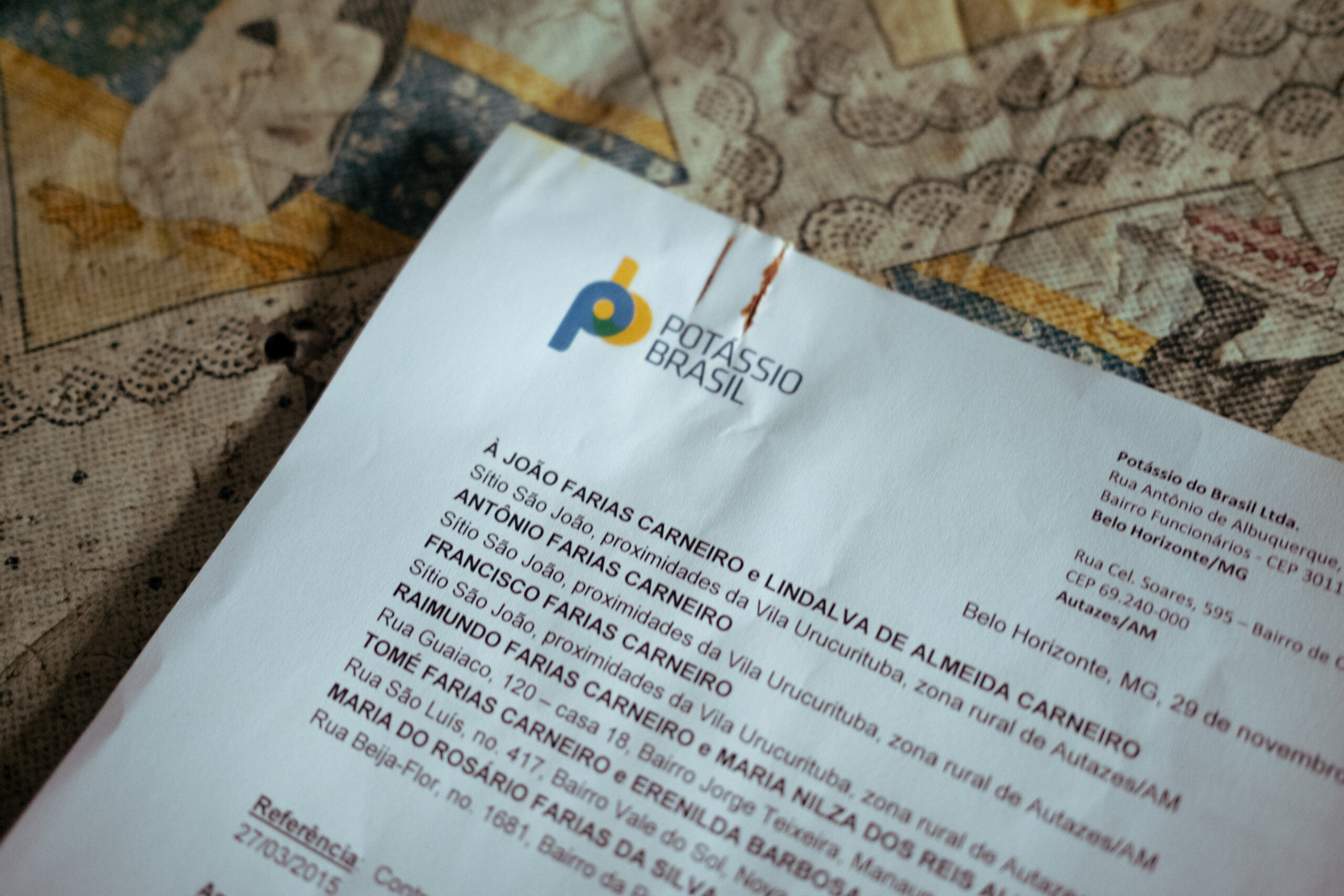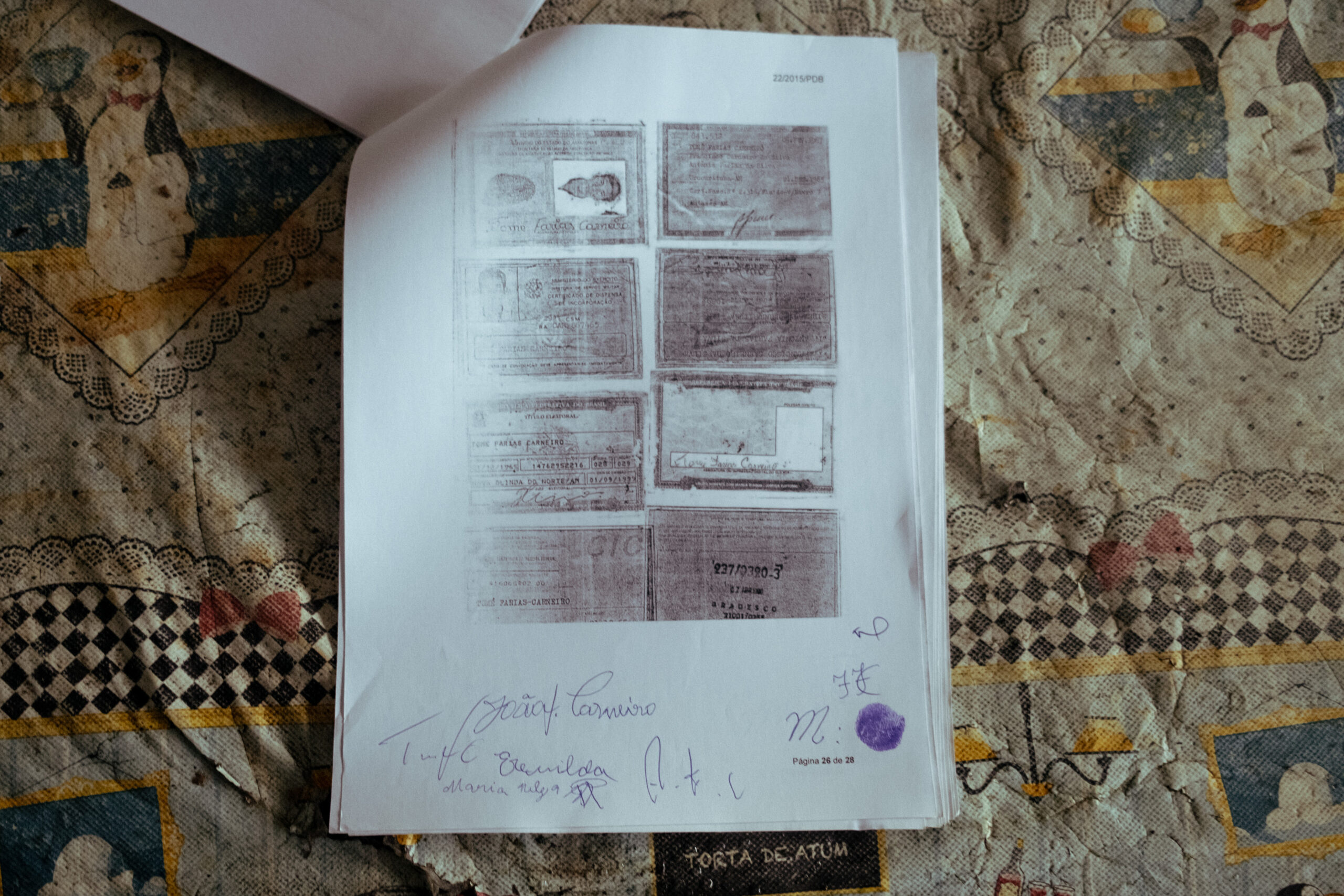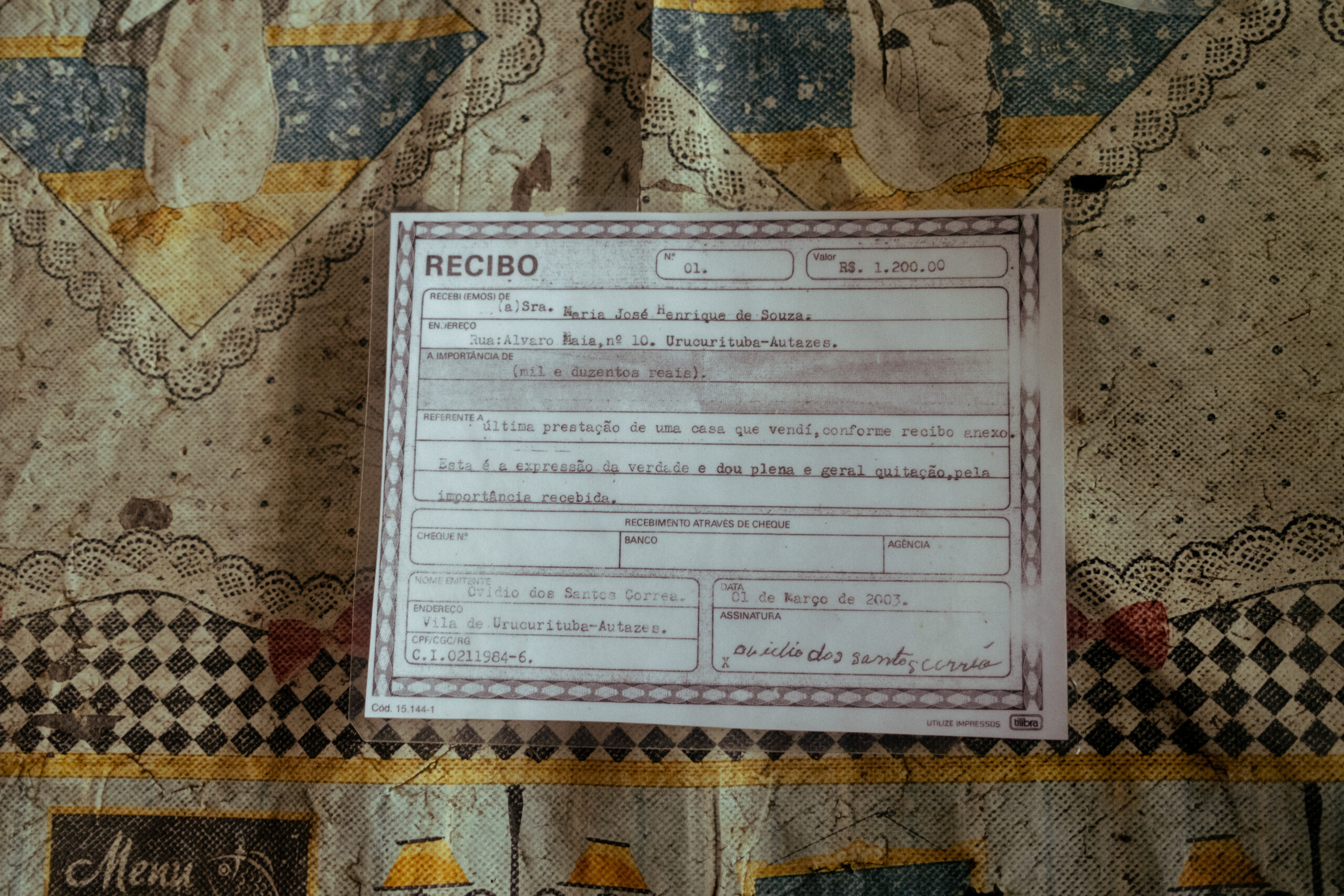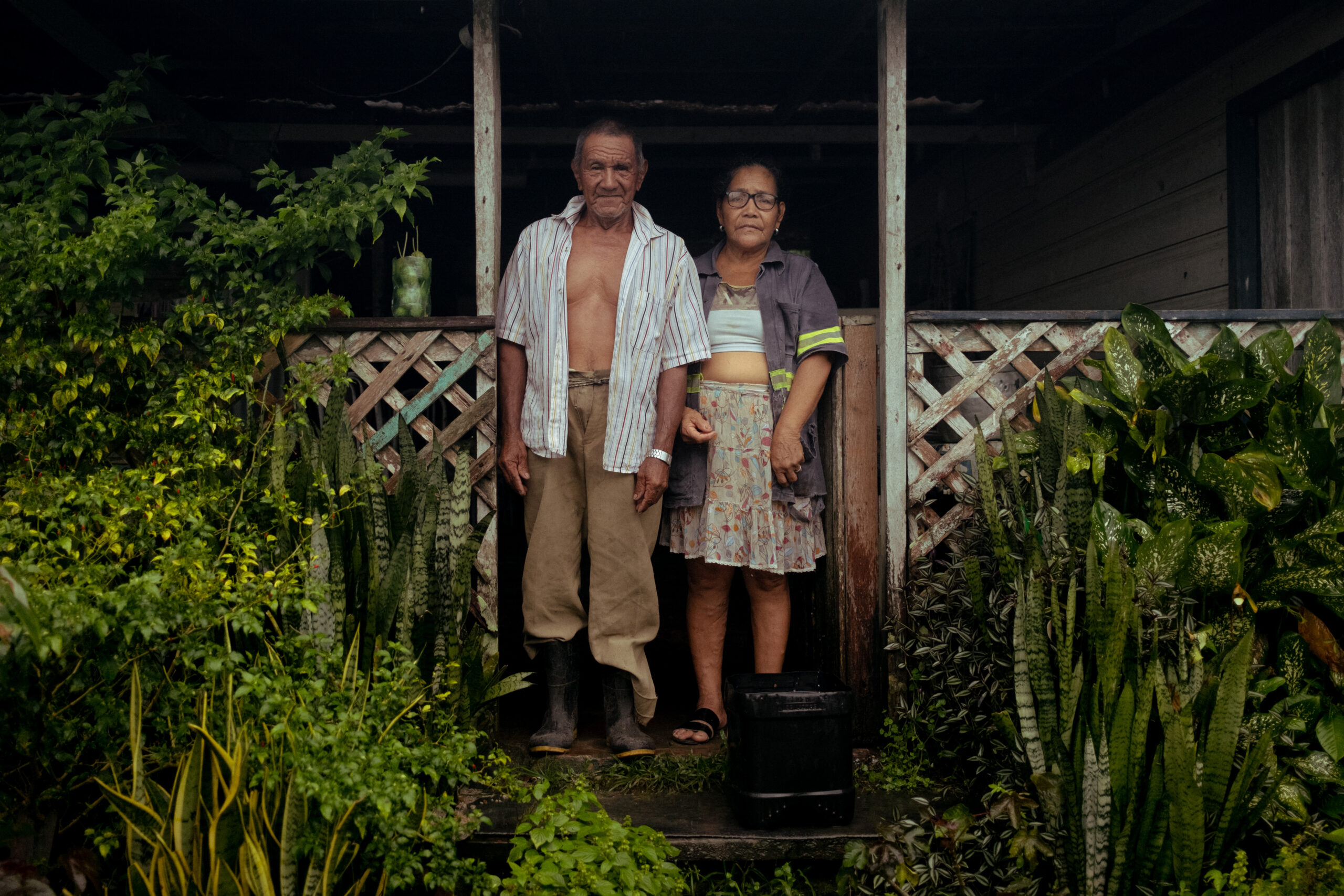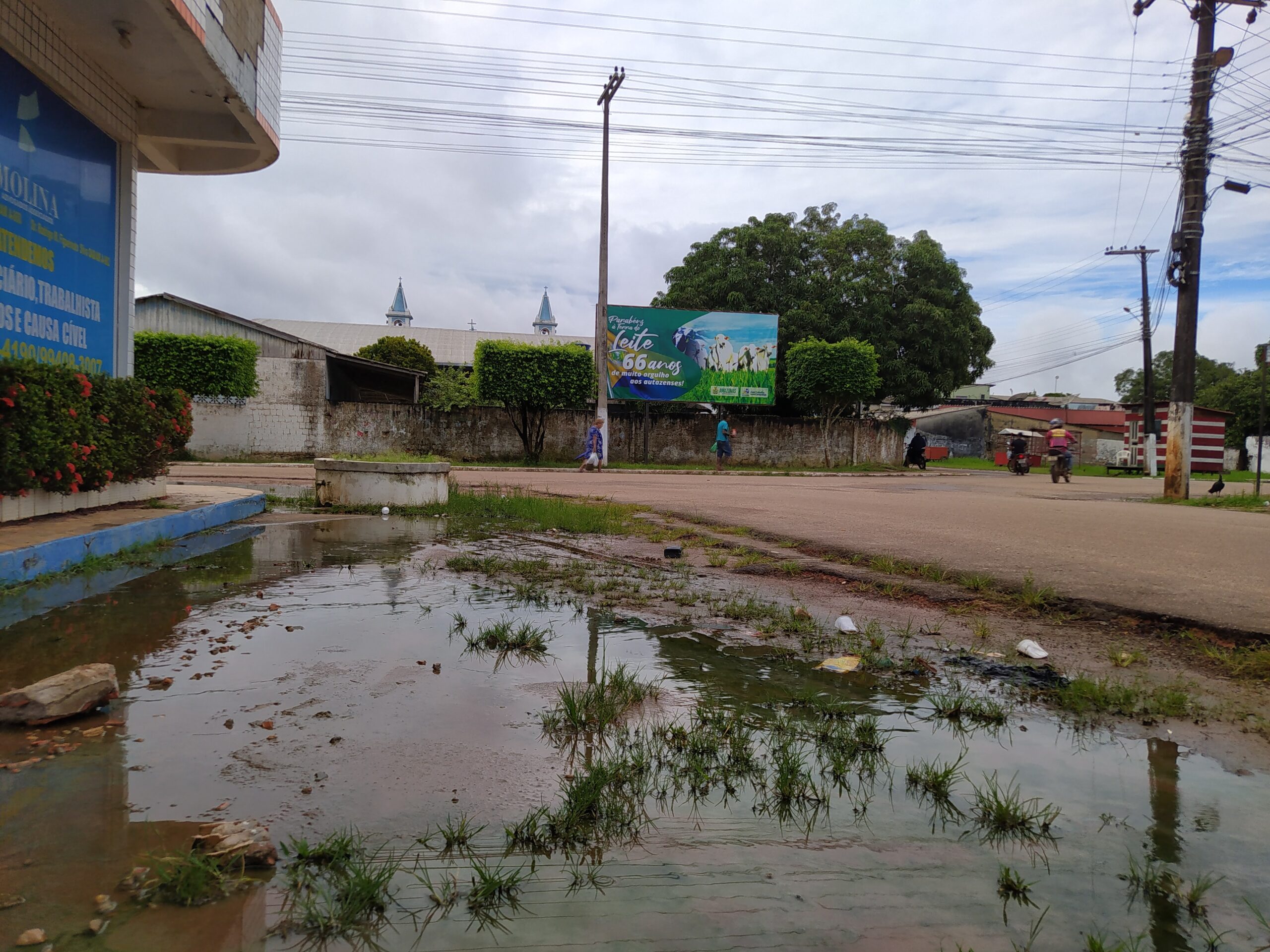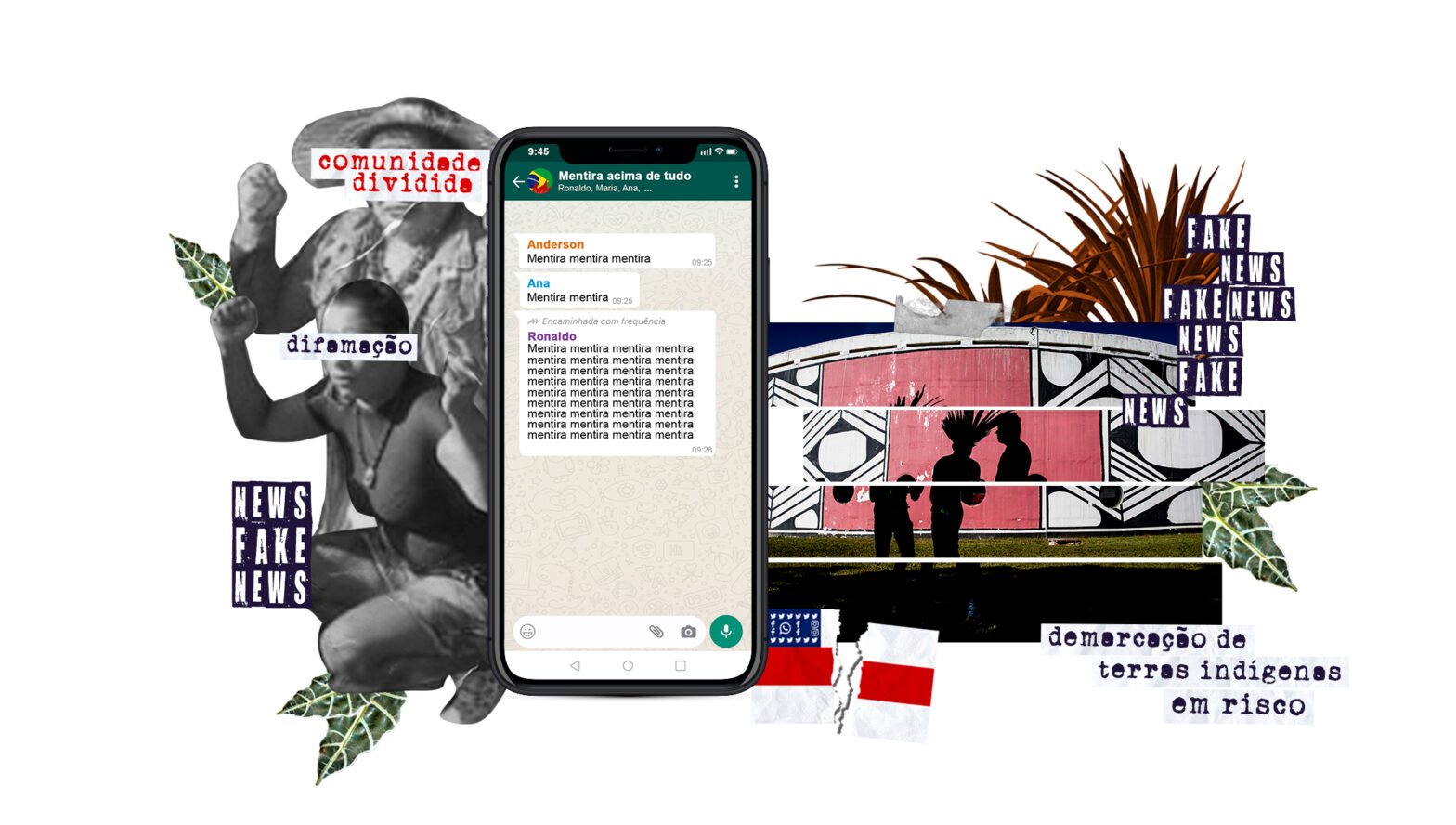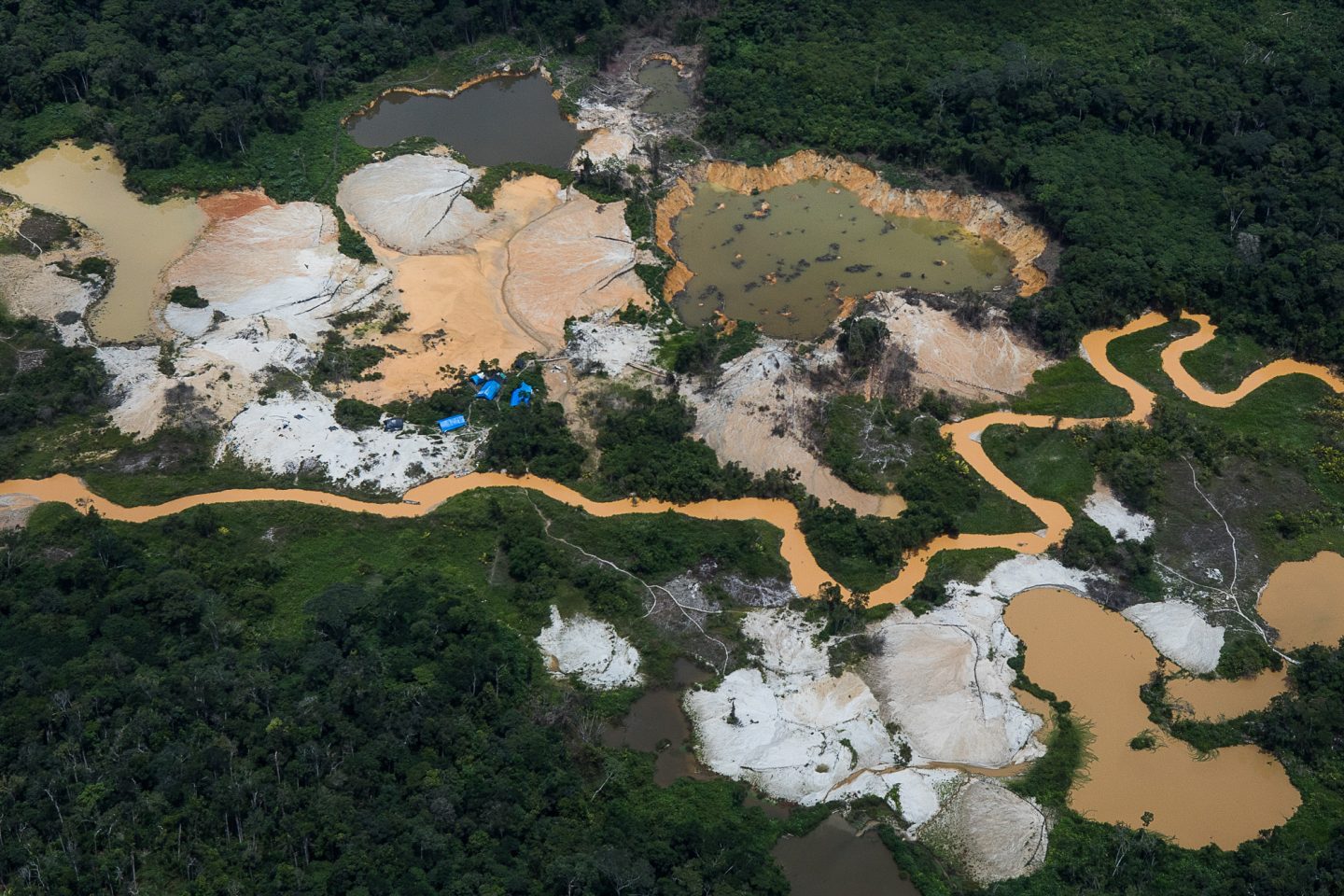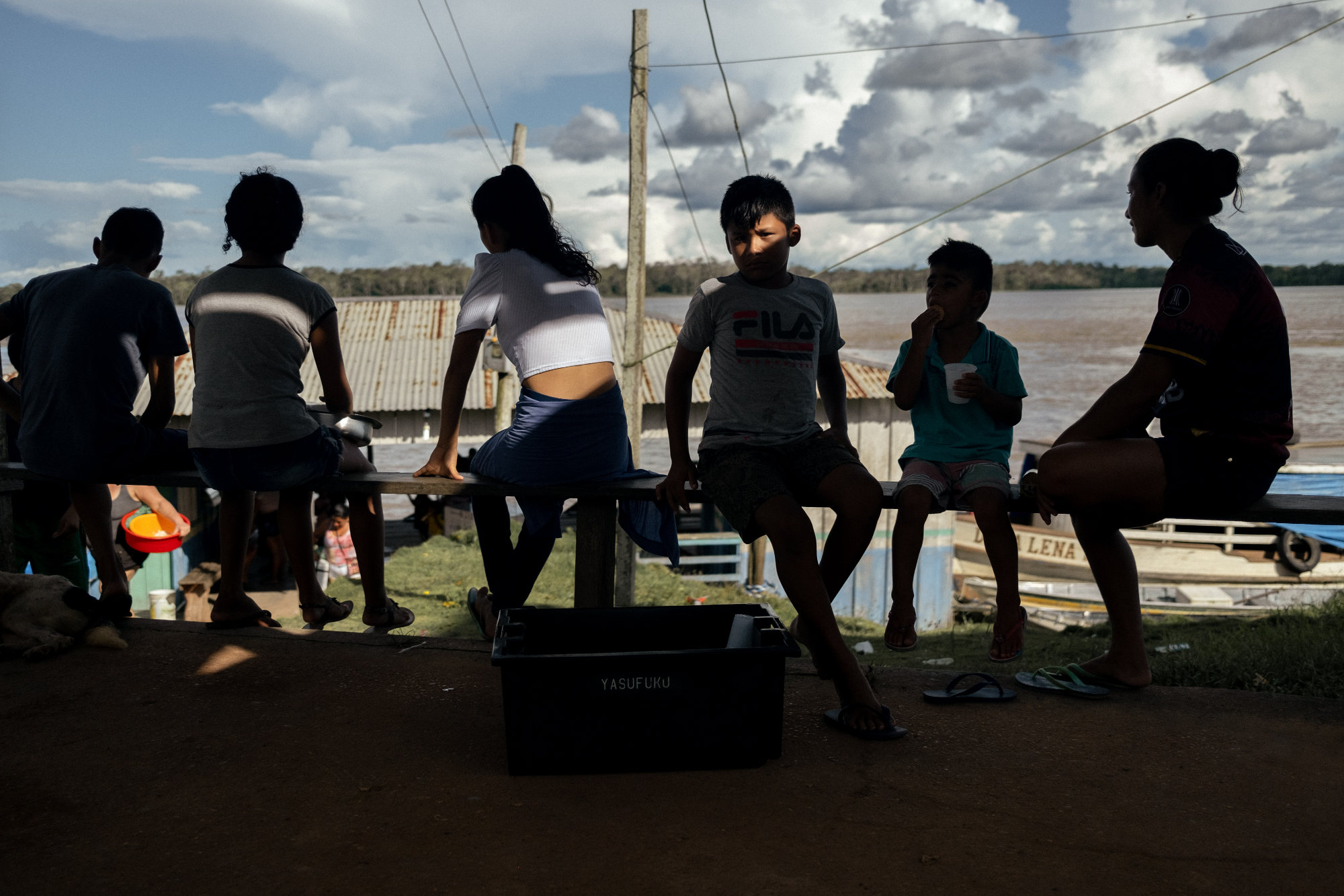
Signs identifying the areas acquired by the mining company Potássio do Brasil are spread across indigenous villages in the outskirts of Autazes, a municipality 110 km from Manaus, the capital of Brazil’s Amazonas state.
“They said: ‘sell it or lose it’”, explains Sérgio do Nascimento, the tuxaua (leader) of the village of Soares, recalling the mining company’s approach to occupy the territory where the Mura people have lived for centurie
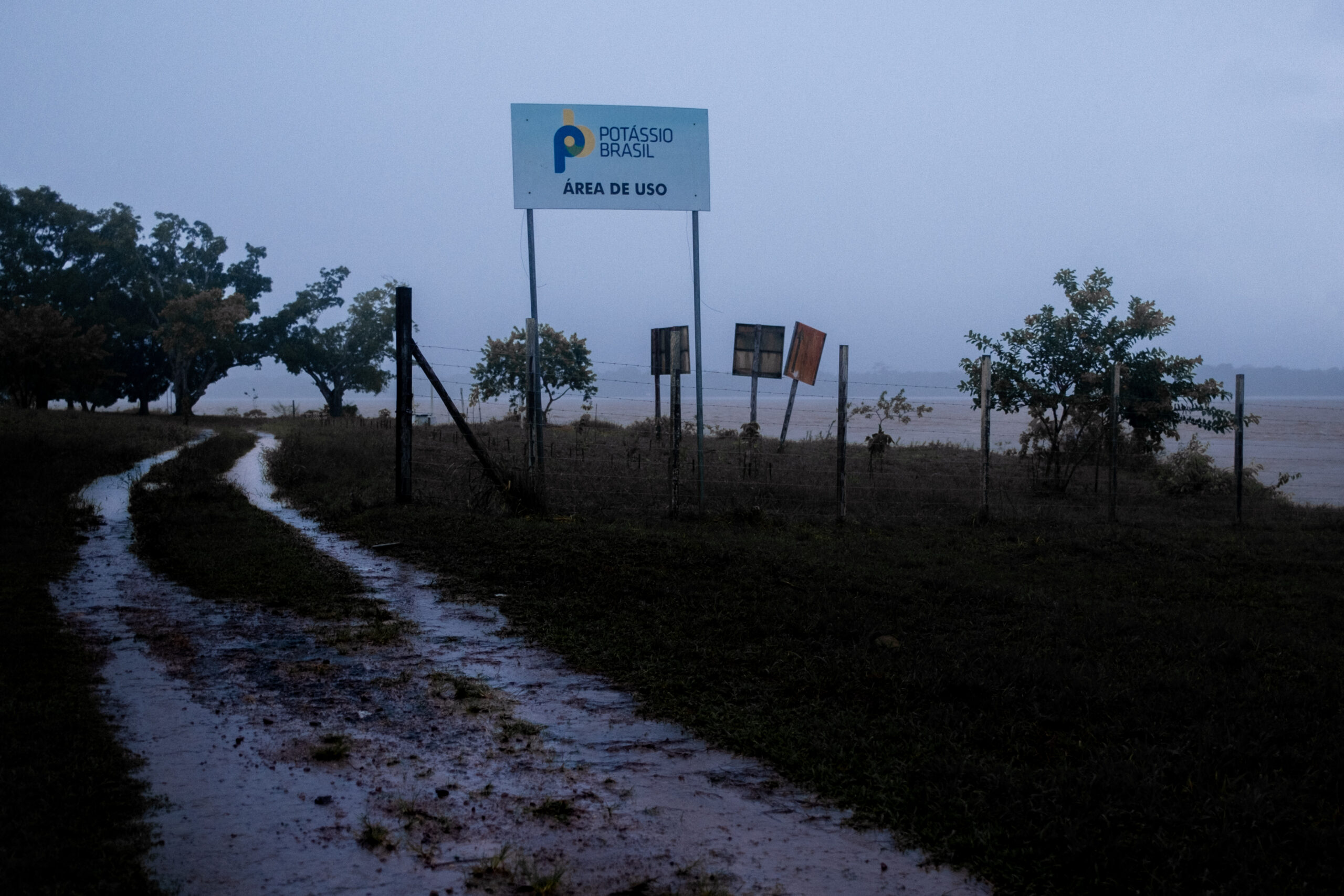
Potássio do Brasil, Brazil Potash, is entering the region to build a facility exploring for the potassium-rich salts that are a key fertiliser. Their advance is gaining momentum in the wake of a global fertiliser crisis, deepened by the war in Ukraine.
The main venture is the excavation of the largest potash mine ever identified in Brazil, here in Autazes. But it also wants to explore a huge underground area in the Amazon and Madeira river basins.
Since 2010, the company has drilled 33 wells in Autazes, including unauthorised soil borings in the Jauary Indigenous Land, which was classified in 2008 by FUNAI, the government agency for indigenous affairs. Others have been drilled in the self-demarcated Soares-Urucurituba Indigenous Land, claimed since 2003. The entire region is occupied by the Mura.
“They say that the project is far from the indigenous land, but we know that’s not true, they are inside our areas,” adds Nascimento, using a map to show how the project would encompass their land.
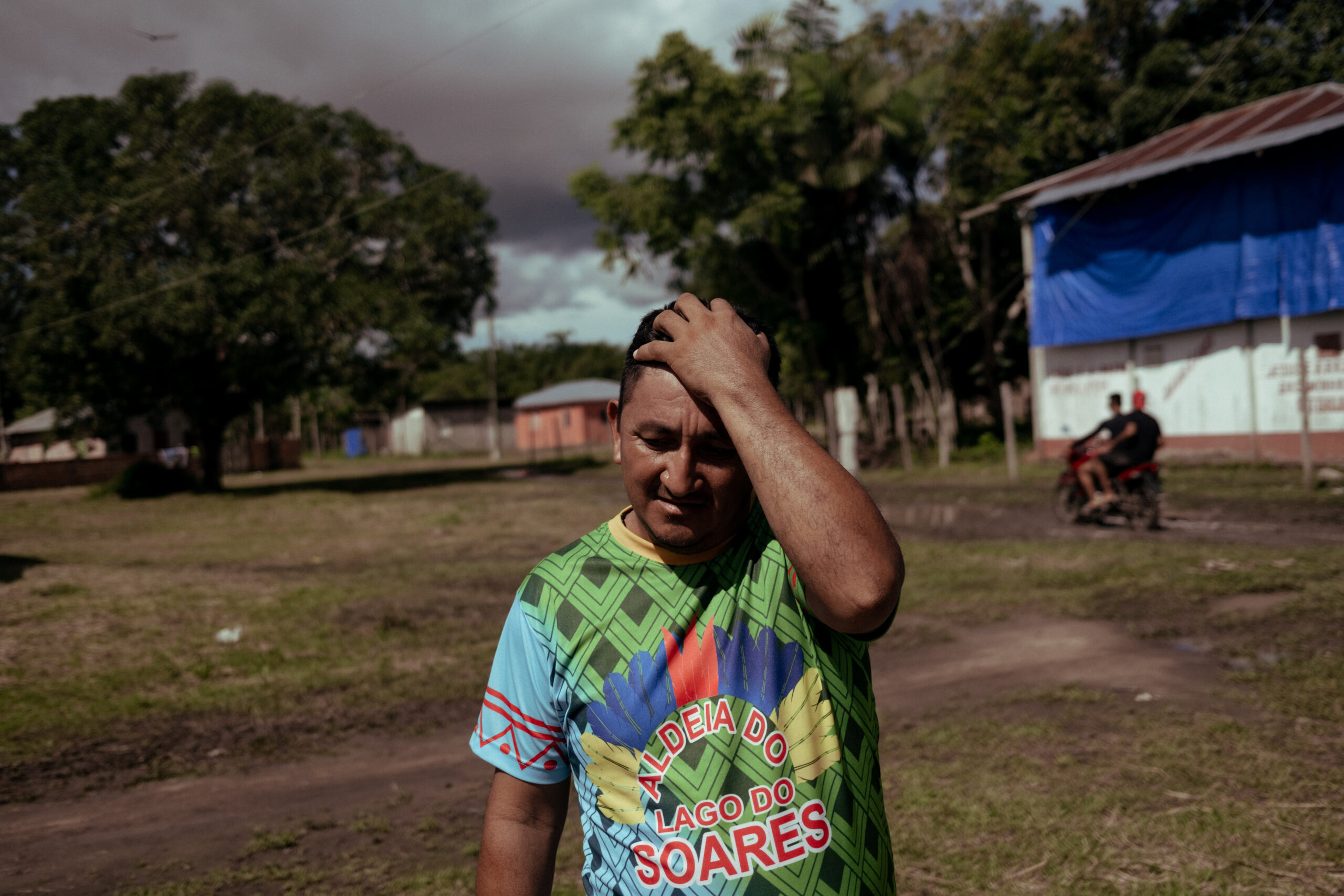
The mining company does not recognise the Soares claim and says that the project does not affect the Mura territory. It does not rule out, however, the exploration of the subsoil of Jauary land, for which a number of exploration requests have been made to the National Mining Agency (ANM).
The plan for the project presented by the company to the indigenous people shows that the entrance to the mine is only 2 km from the Soares village, and 8 km from both Jauary and Paracuúba, another Mura indigenous territory. The area to be exploited for the subsoil is 13 km long and 10 km wide, reaching into Mura lands.
The pressure is not only being felt by the Mura. Lindalva de Almeida Carneiro can neither read nor write, so in 2017, she used her fingerprint to authorise the sale of her piece of land to Potássio do Brasil. For the 16.9 hectares where she lived and farmed with her husband João Farias Carneiro and other family members, they received 60,000 reais (US$12,000).
“We didn’t want to sell, but they managed to pressure my brothers, and each one got 10,000 reais,” she said.
Lindalva and her brothers left the land. The company offered them a deteriorated wooden house in another area, with no space for plantation.
These complaints were also verified by representatives of the federal Public Prosecutor’s Office (MPF) and the Federal Justice for Amazonas state, in an investigation carried out in the region on 29 March. It pointed out that the mining company pressured and coerced indigenous people and ribeirinhos, riverbank dwellers, and prevented them from accessing their former lands.
“It’s very serious, many of them are prevented from using their fields,” said federal prosecutor Fernando Merloto Soave, who is calling for the annulment of the land sales and the removal of the signs.
In one case cited in the lawsuit, an indigenous man reported pressure from Potássio do Brasil to sell his lot for 120,000 reais (US$24,000) and receive another 900 reais (US$180) each month during drilling work in the area. He rejected the deal.
Ambitious potash exploration complex
In Autazes, the mining company, which is controlled by the Canadian bank Forbes & Manhattan (F&M), estimates that it will be able to exploit 2.4 million tonnes of potassium per year. In addition to the almost kilometre-deep mine, the project includes the construction of roads, a port and a factory processing agricultural inputs.
The company has also identified potassium salt deposits in Novo Remanso, Itacoatiara and Itapiranga, and in March it received authorisation from the ANM to drill stretches in São Sebastião do Uatumã and Urucará, all in the state of Amazonas.
In total, the company’s operation would extend over an area of more than 1 million hectares between Autazes and Óbidos, in the state of Pará, for which 151 applications have been made to the ANM. At least 19 of these applications overlap with or are continuous with already demarcated indigenous lands.
In Itapiranga, 100 km north of Autazes, the company has received an operating licence to explore a mine where it promises to produce 2 million tonnes of potash per year.
At the end of last year, the Potássio do Brasil CEO Matt Simpson wrote enthusiastically to investors that the deposits have potential comparable to those at Autazes, which would almost double its estimated production capacity.
Simpson also said that he had initiated discussions with large farmers in Brazil to sell potash directly, as a way to finance the operations.
Interference in indigenous consultation
Potássio do Brasil’s Amazon project has long been plagued by conflicts and uncertainties. In 2017, the country’s Federal Court suspended the environmental licences of the mining company until the prior consultation with the 44 villages of the Mura people was completed, as provided for under the International Labour Organisation’s Convention 169.
In 2019, in the face of an impasse with the mining company, the Mura drafted guidelines for their consultation over the project that would impact their lands.
“The consultation procedure must have the following characteristics: be prior to decisions about the undertaking, be free of cooptation and coercion, informed in a simple and straightforward manner, and in good faith,” explained prosecutor Soave, adding that failure to comply with the process can nullify it.
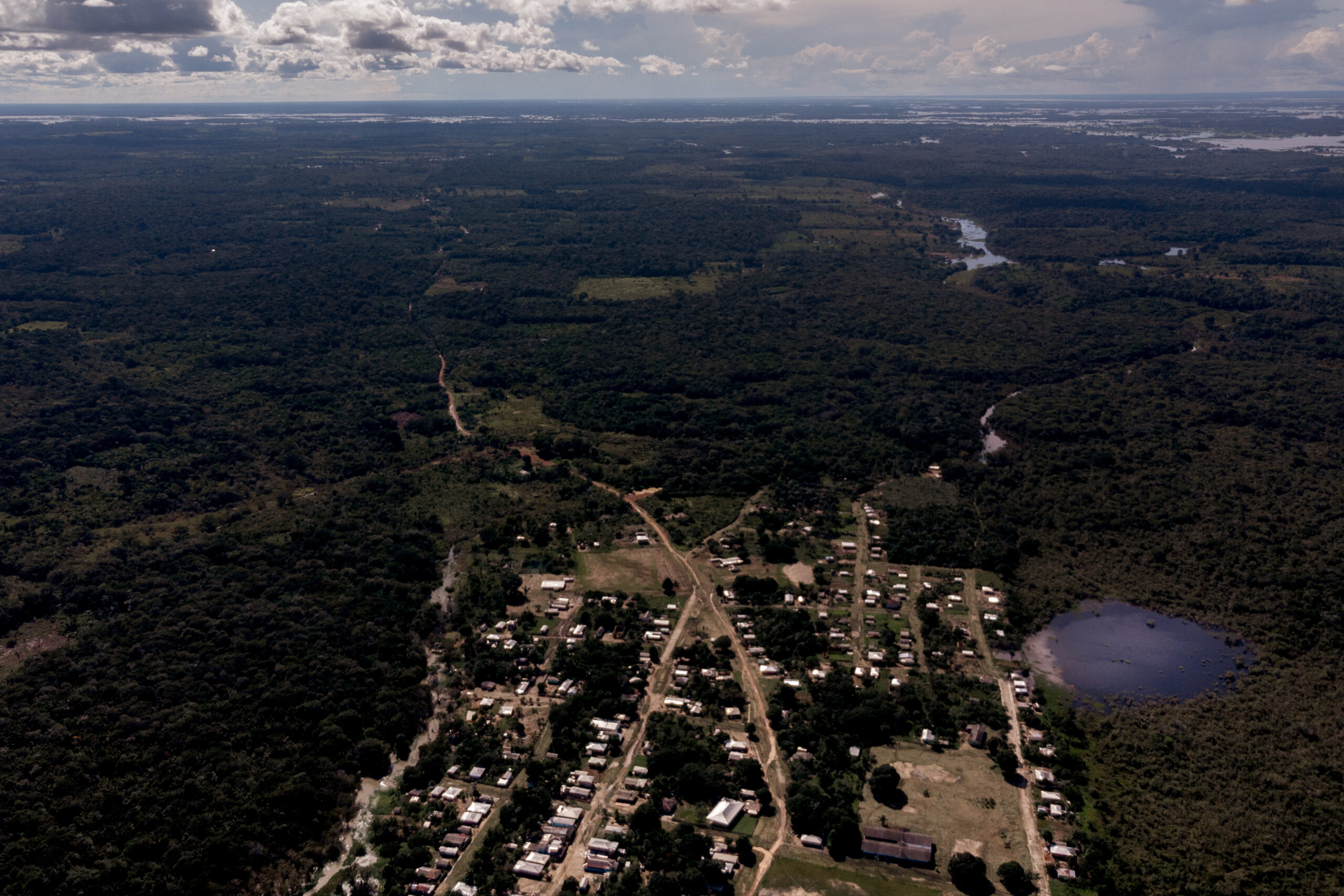
The Covid-19 pandemic delayed the consultation. It was resumed in early April after a court decision instructed Potássio do Brasil to pay 1.2 million reais (US$240,000) to fund the process. Almost half of the amount was used to hire consultants from the Federal University of Amazonas (UFAM) and to pay Mura leaders to coordinate the process.
To deliberate on the risks and impacts of the mine, the Mura Indigenous Council (CIM) convened an assembly, held 4–8 April 4, gathering their leaders and experts from UFAM. Reporters from Diálogo Chino and InfoAmazonia followed the meeting, which, according to some of those present, ended up becoming merely a platform for the mining company.
“Many were there to defend the potash project,” was a criticism from an indigenous person who preferred not to identify themselves for fear of reprisal. “What we really want to know is what can happen to our river and our forest, or what can happen in case of an accident.”
What we really want to know is what can happen to our river and our forest, or what can happen in case of an accident
indigenous person who preferred not to identify themselves for fear of reprisal
The Public Prosecutor’s Office and the Federal Court are also investigating suspicions of enticement and corruption in the indigenous consultation process. For prosecutor Soave, the meeting was organised “extremely quickly”. The prosecutor and human rights organisations were not invited, but representatives of Potássio do Brasil participated in the meeting.
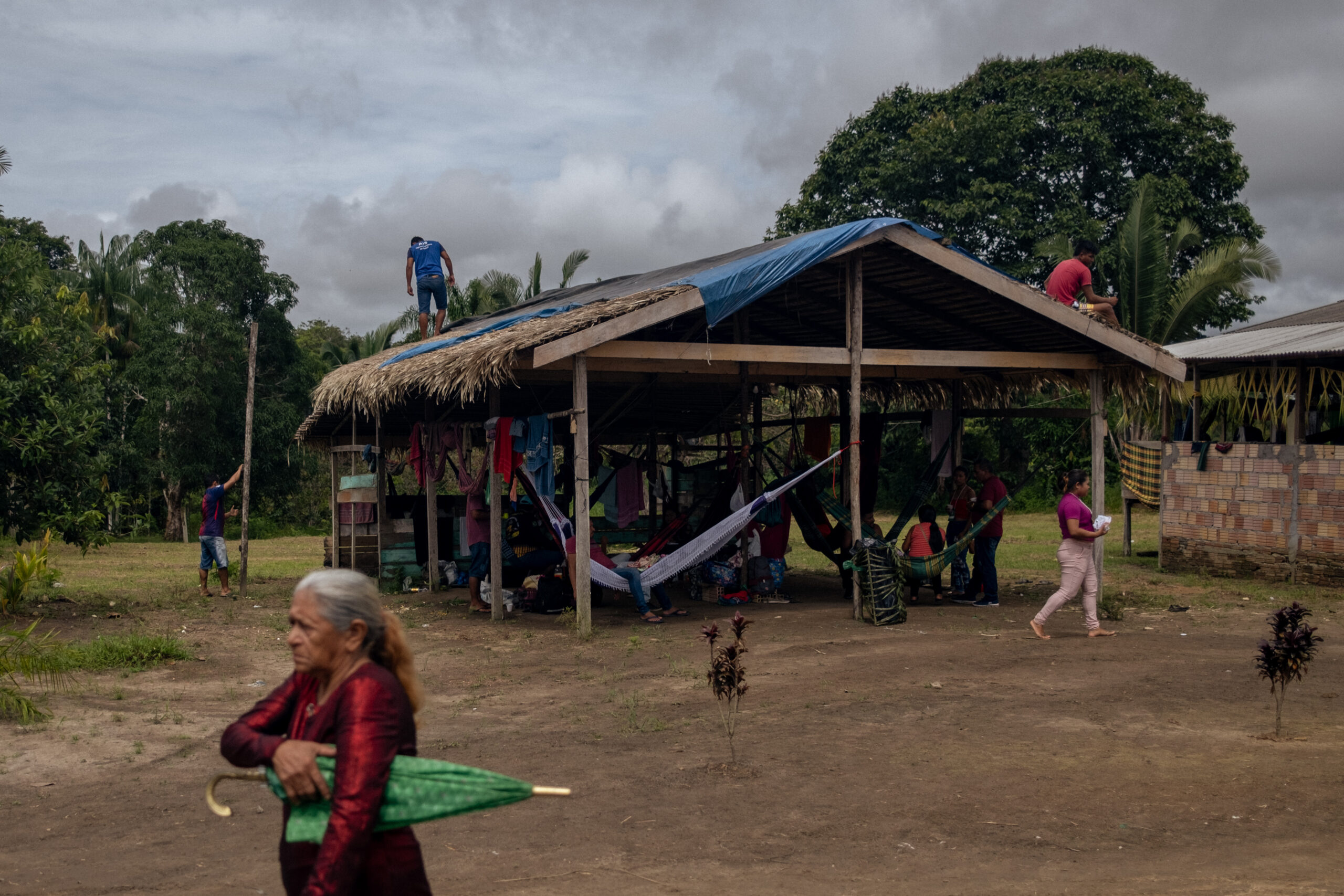
During the meeting, the president of CIM, José Claudio Pereira Yuaka, downplayed concerns over the external pressure that some raised, and denied that the Mura had taken any hasty decision. Yauka did not want to give an interview.
One of the experts hired is geologist Daniel Nava, a notorious defender of the project. In his 2019 doctoral thesis, Nava recommended that the Mura accept mining and demand a share of the profits from the activity.
Nava was also previously secretary of mines and energy for the Amazonas state government, served as a consultant to IPAAM, the state environmental protection body, and analysed the environmental impact study commissioned by Potássio do Brasil.
“It was the best study I’ve ever analysed in my professional life,” Nava said during a debate in March. He also hasn’t spared any praise for the mining company in articles and interviews.
Development promises
In the municipality of Autazes, almost everything is lacking. Sewage runs openly in the streets, there is no road infrastructure, and unemployment and poverty affect more than a quarter of the population. According to government data, out of 40,000 inhabitants, more than 12,000 are registered in social security programmes of the federal government.
With the promise of generating 1,600 direct jobs and almost 17,000 indirect jobs, the potash exploration project is regarded with hope by many of the population.
“I myself went back to school because they told me I might have a job opportunity at the mine,” said unemployed student Mizael Campos de Souza.
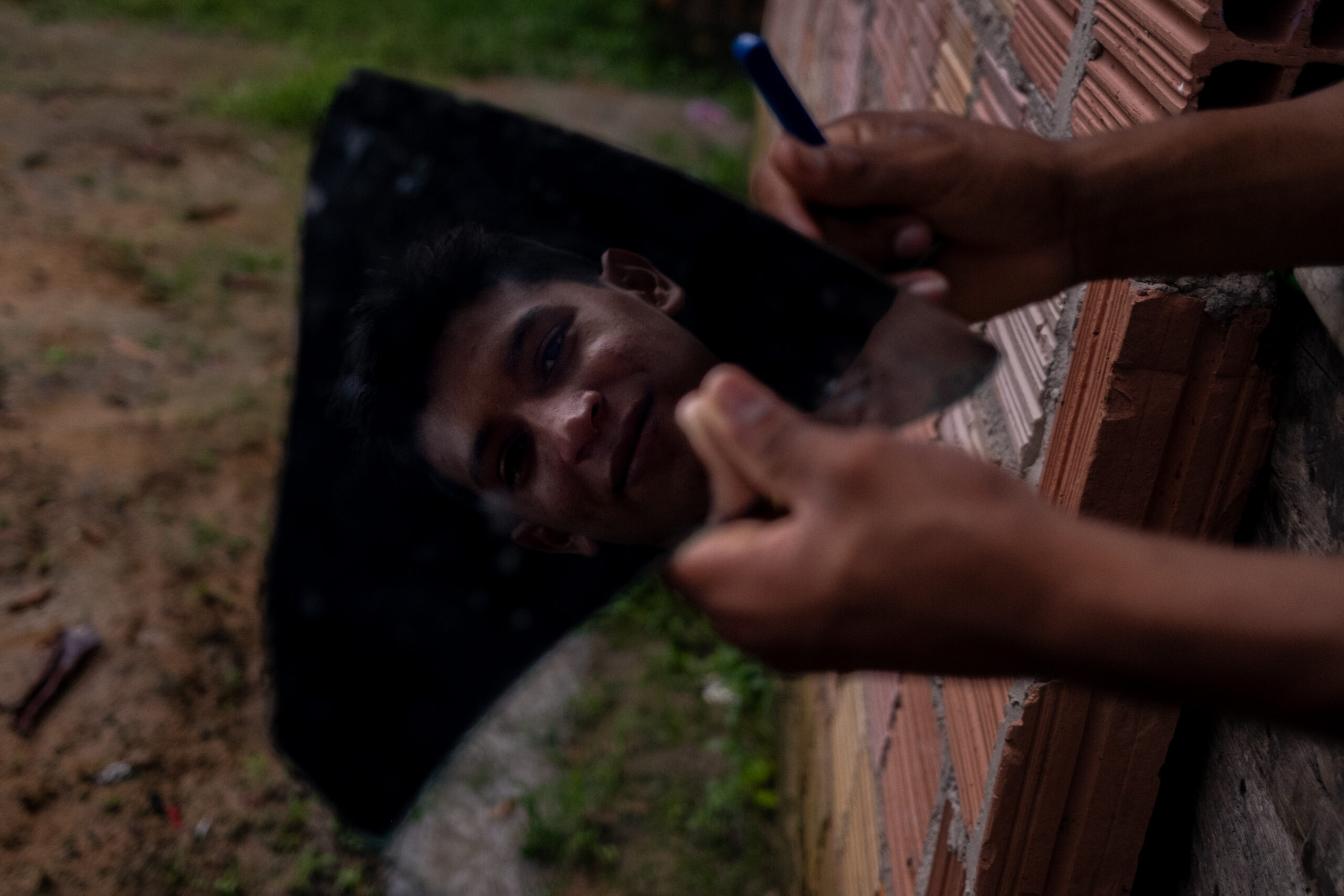
The arrival of investment also cheers fellow resident Salvador Laranjeira: “This is good, we need a lot of things here, and this project will bring development.”
Paulo Gilvan Sampaio, a motorbike taxi driver, speaks of the increase in movement that Potássio do Brasil has already brought to Autazes, during the opening period of soil research. He is optimistic about the project’s potential. “This will attract more people to the city. It will generate more consumption and jobs.”
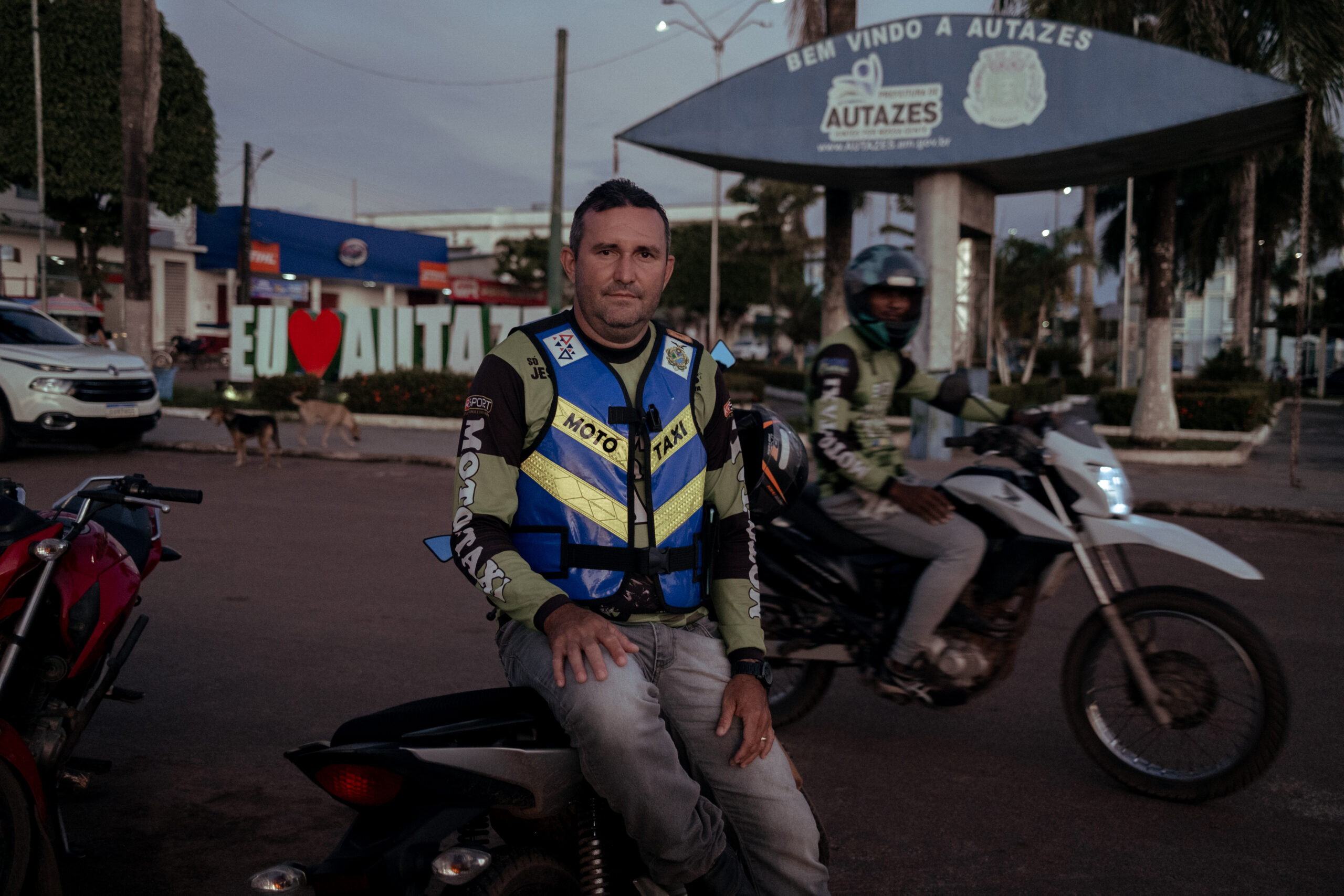
Autazes councillors enthusiastically list the promises of the mining company, such as hospitals, surveillance cameras in the streets, basic sanitation, infrastructure, schools and improvements in the electricity supply.
“The population demands a lot of us, because we have an expectation of improvement for the town. If they already exploit potash in Canada, Russia and Belarus and there are no accidents, why shouldn’t they do it in Autazes?” declared councillor Tadeu Cabral.
But in the Mura villages, there is still no consensus about the megaproject.
Steering his canoe on the Mutuca river, professor Roni Tukuxi points to the barricades that remind him of the combative spirit of the Mura people. During the Cabanagem revolt in the 19th century, these blockades were installed by indigenous people to prevent the passage of regency government vessels to the villages.
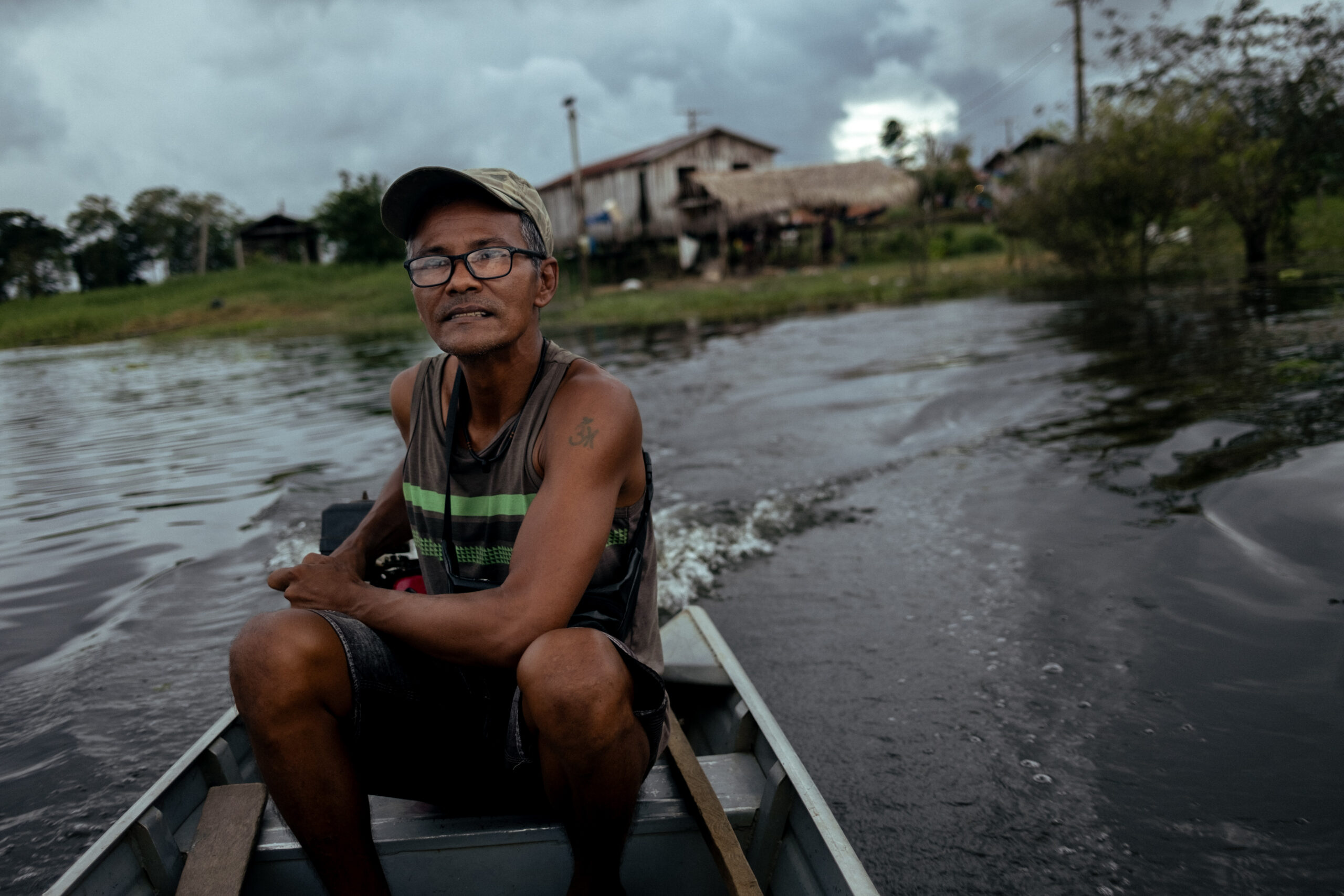
Over the centuries, the group has been the target of massacres and suffered various territorial losses. Even today, their lands are invaded by ranchers and land-grabbers. For this reason, Tukuxi fears the advance of the mining company. “We know that the installation of a mine can make things much worse,” he says.
Teacher Matilde Mura also views the future of opportunities promised to her people with suspicion. “We live off hunting and fishing, and we are not against progress, but we need to know how the mining project will affect our lives,” she says.
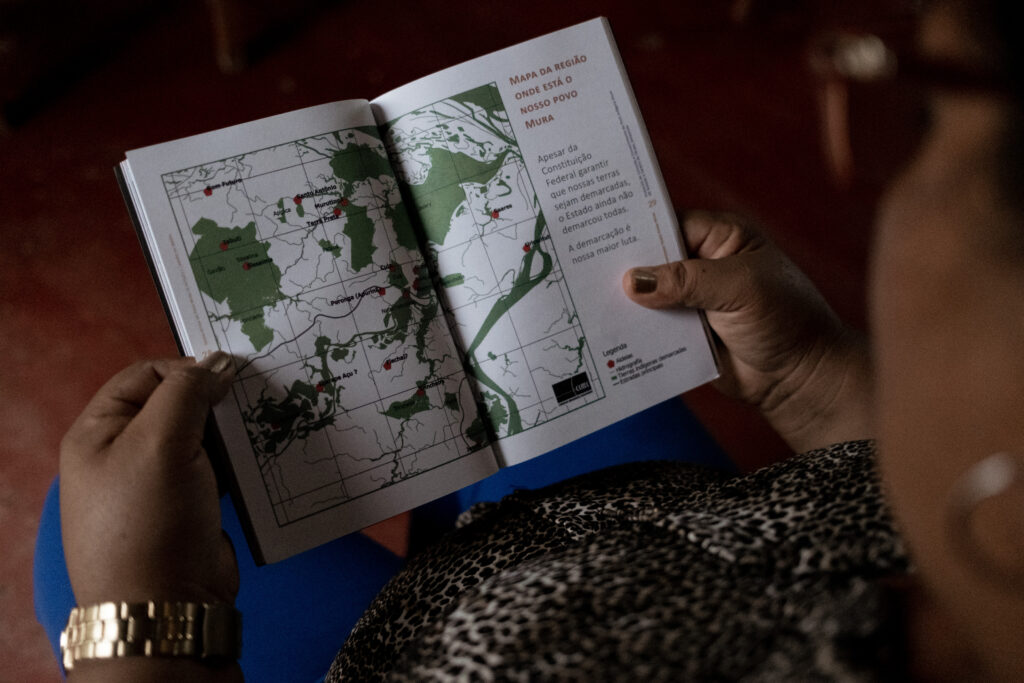
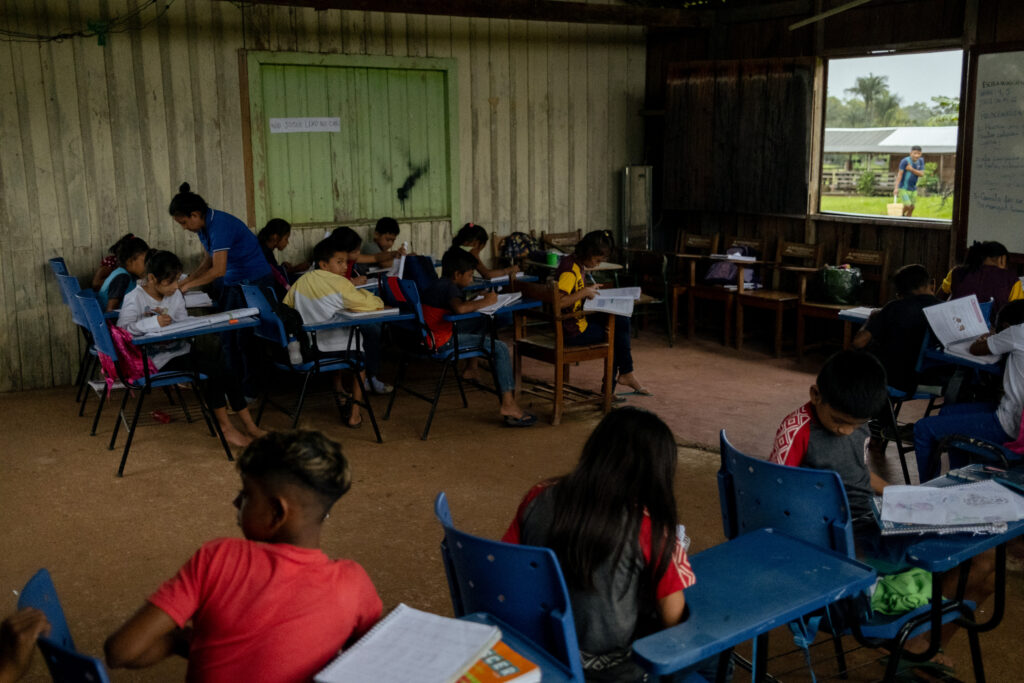
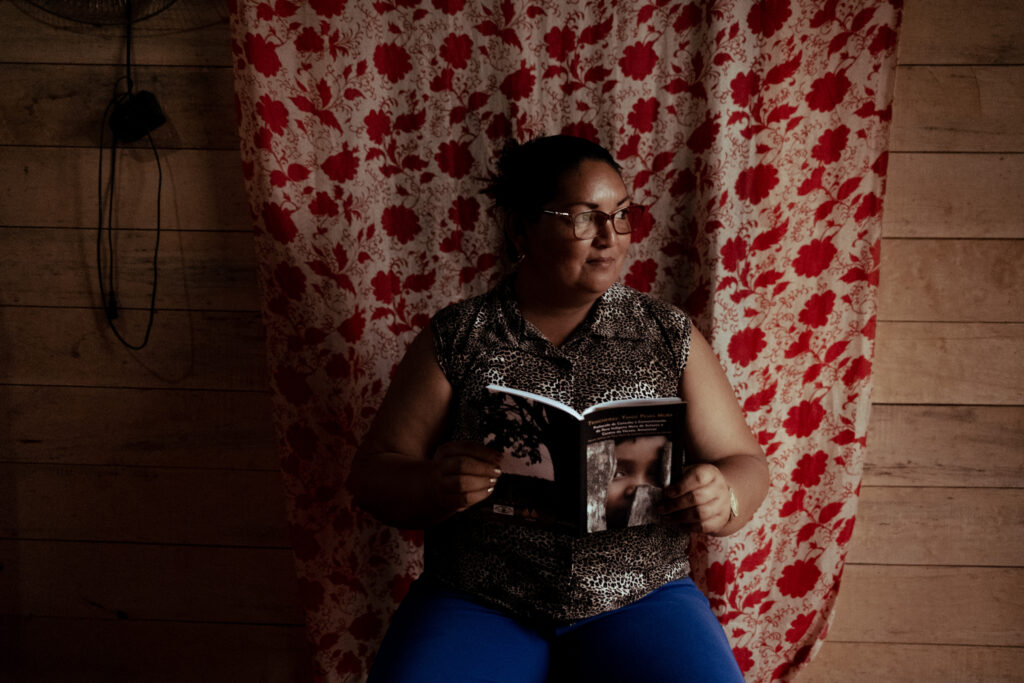
In addition to the promise of jobs and infrastructure works, Potássio do Brasil has been taking on responsibilities that are mixed with those of public services, since it arrived in Autazes more than a decade ago.
It has distributed food baskets, donated items for the construction of houses and promised jobs to residents. It has also donated equipment, distributed seedlings and carried out vaccination campaigns against Covid-19 alongside the municipal departments.
In this process, while the mining company bought areas occupied by indigenous people and promoted charity work, leaders critical of the project, such as Tukuxi, were distancing themselves from the discussions.
“This pressure for the mine to bring development generates a climate of conflict between the people of the city and the villages” adds Tukuxi.
This pressure for the mine to bring development generates a climate of conflict between the people of the city and the villages
Roni Tukuxi, Teacher
Councillor Cabral, however, plays down the conflict, saying that those opposed to the project “were influenced”.
“In Autazes, the Mura and the whites live in peace, but when there is interference from outside trying to play the Mura people against our people here – the legitimate people here – we start to have problems,” he says.
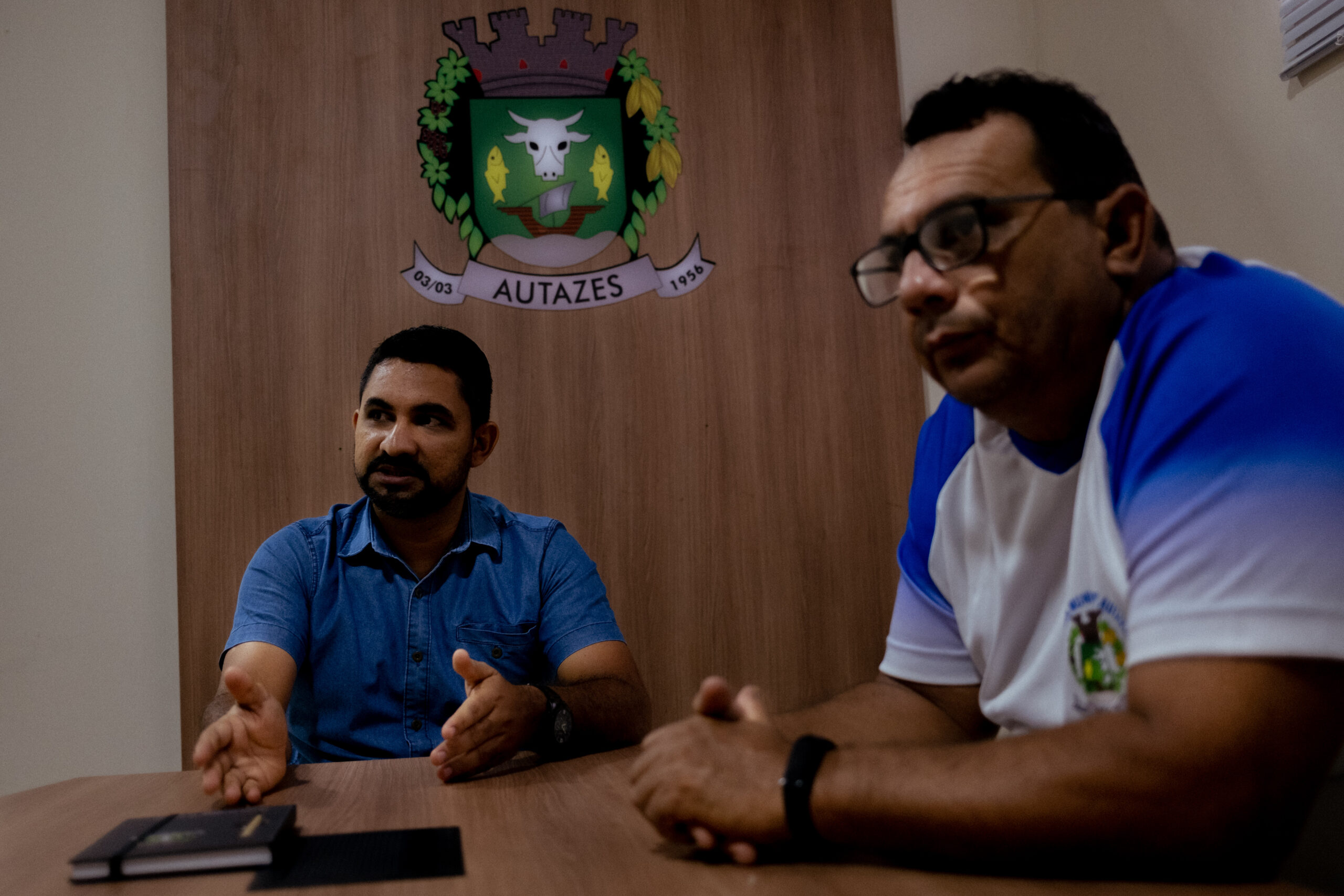
Political and economic influences
Although an agreement signed in 2017 established that the decision of the Mura is essential to authorise or reject the mega-development, Potássio do Brasil treats its progression as certain, as pointed out by the Public Prosecutor’s Office.
In March, the mayor of Autazes, Anderson Cavalcante, travelled to Canada at the invitation of Potash Brazil, accompanied by the then Minister of Agriculture, Tereza Cristina. In the same month, executives from the multinational met with president Jair Bolsonaro. The agenda, according to the company, was “to help Brazil to depend less on fertiliser imports”.
Vice President Hamilton Mourão held meetings with the group in 2019, and advocated potash exploration in the Amazon.
Another in contact with the Canadian firm was Blairo Maggi, former agriculture minister under the Michel Temer government (2016–2019) and owner of Amaggi, Brazil’s largest grain trading company. Through Hermasa Navegação, Amaggi’s shipping arm, the politician and businessman wants to operate in so-called “return freight”, in which the vessels that take soybeans abroad return with fertilisers.
“Without these alliances between politicians and financial capital, a project like this would hardly advance,” says lawyer Fernanda Bragato, coordinator of the Human Rights Center of the University of Vale do Rio dos Sinos, in Rio Grande do Sul.
“There is no parallel in history to potash exploitation in such a sensitive region as this in the Amazon. Everything indicates that the indigenous people are being deceived, involved in a kind of internal colonialism that involves different spheres of power,” she added.
There is no parallel in history to potash exploitation in such a sensitive region as this in the Amazon.
Fernanda Bragato, coordinator of the Human Rights Center of the University of Vale do Rio dos Sinos, in Rio Grande do Sul.
The business of Stan Bharti, the owner of F&M, stands out for its practice of identifying mining projects around the world, making local operations feasible and then profiting from the sale of assets on financial markets. This is what has been attempted in Autazes, and in other projects in Brazil, such as Belo Sun, which aims to explore for gold in the Volta Grande do Xingu, in Pará state.
Even without guarantees of obtaining environmental licences, or that the indigenous consultation would be favourable to its business, in 2020, Potássio do Brasil signed a contract with the Chinese construction company CITIC for almost US$2 billion, for the construction of the Autazes complex, as an InfoAmazonia report revealed in May 2021.
Salinisation risks in the Amazon
In 2018, Fernanda Bragato coordinated a study with Cardozo School of Law in New York, comparing environmental and human rights violations in potash mines around the world.
“In Russia, in 2014, we had cases of soil collapse, with huge craters opening. Here in Brazil, we recently had the case of the sinking of the soil in Maceió, Alagoas state, in the exploitation of rock salt [a mineral that contains potassium chloride],” she recalls.
The study lists a series of other accidents, such as mine tunnel implosions and gas explosions, such as those that occurred in 2015 in the Conkouati-Douli National Park in Congo.
Suzi Huff, a geologist and member of the board of the Brazilian Federation of Geologists, agrees that the installation of a potash mine brings high risks of accidents. She also warns that the residues from potash mining, left in the open in an area with high rainfall, can increase the salinisation of water.
“If there is not a very safe geotechnological control, there is this risk, which could alter the entire ecosystem of the region,” she explains.
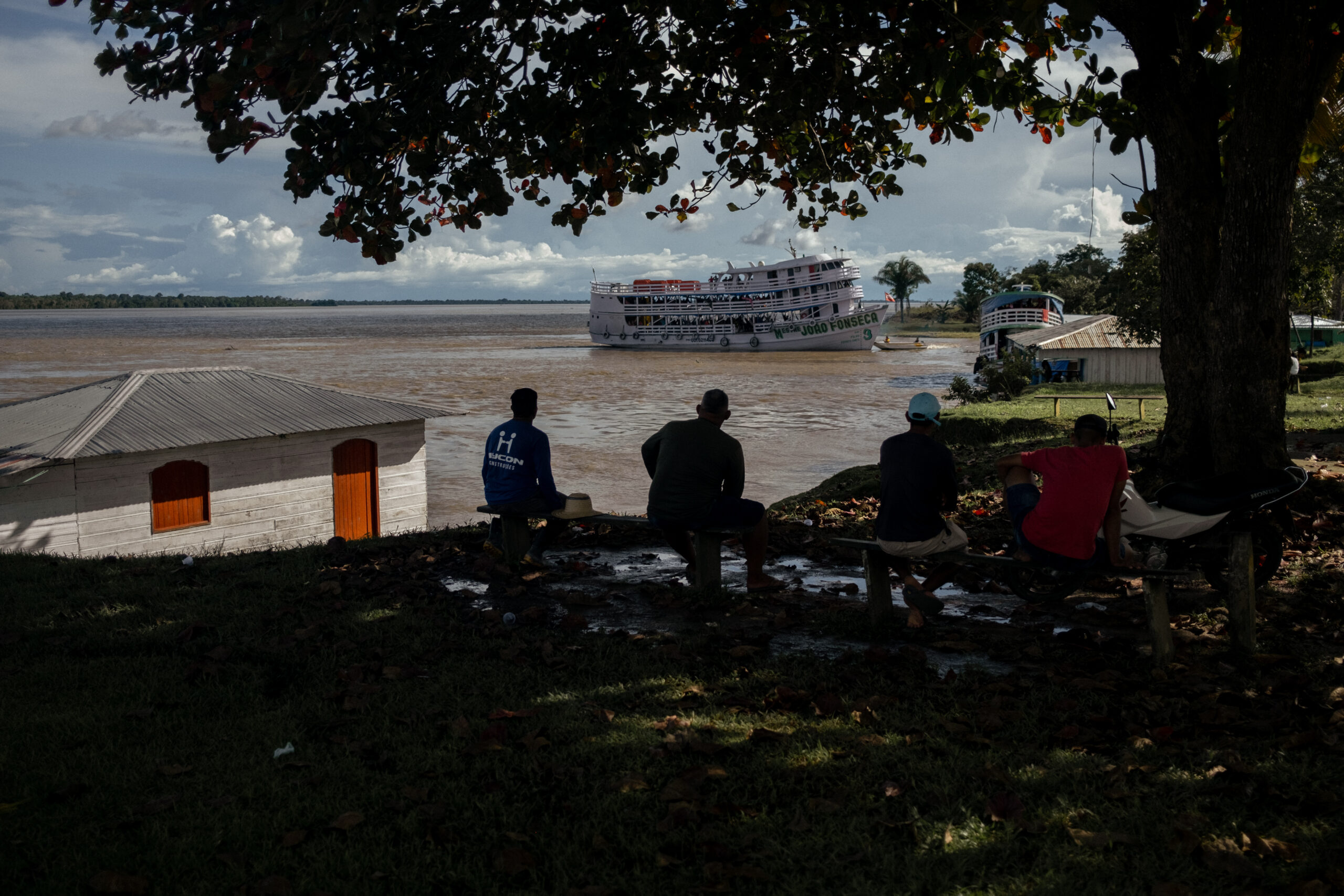
Potássio do Brasil denied, through its advisory services, that it is coercing indigenous people and ribeirinhos and affirmed that the purchases of land in the region “were based on technical evaluation reports prepared by companies specialised in the field, and carried out on non-indigenous lands.”
The geologist Daniel Nava, who is nominated to once more assume the Amazonas mining secretary position, did not want to comment on his participation in the indigenous consultation process.
This report was produced in partnership with Diálogo Chino


